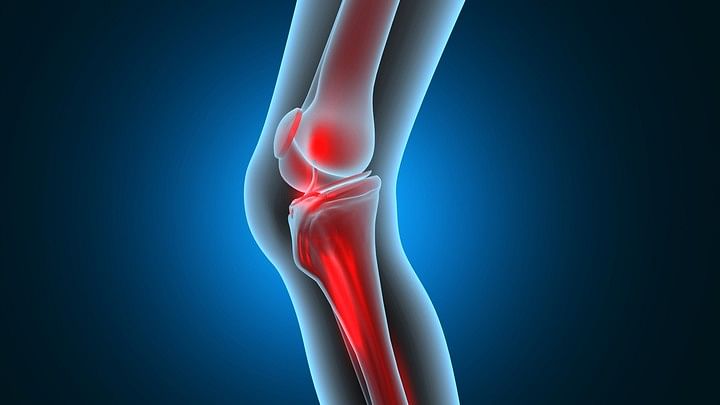
Representative image showing a bone.
Credit: iStock Photo
Scientists at University of California in San Francisco (UCSF) and UC Davis have found a hormone in breastfeeding women that helps keep their bones strong and aid in heal fractures, reported Interesting Engineering.
The researchers tried to solve the mystery of how women's bones remain unaffected even though they lose calcium to produce milk. In a press release, the researchers stated, despite lower estrogen levels, “osteoporosis and bone fractures are much rarer," and claimed that this suggests there are other factors at play.
Previously, senior author of the study, Dr Holly Ingraham and others, found that blocking an estrogen receptor in neurons in a small area of the brain of female mice increased their bone mass. They suspected a hormone in the blood was linked to stronger bones but couldn't find the hormone.
However, an “exhaustive search,” led them to identify CCN3, a hormone that behaved differently than others secreted by the neurons.
The press note added, “The notion that a hormone can be secreted directly from the brain is a new concept in the field of endocrinology. Our findings leave us wondering if other hormones are secreted from the so-called ‘windows of the brain’ in response to changing physiological demands, such as lactation.”
Interesting Engineering further notes that they were able to locate CCN3 in the same brain region in lactating female mice, but so far not the receptor.
In absence of the hormone, lactating female mice lost bone mass, and the babies lost weight as well. Thus, due to the significance of the hormone, the researchers named it Maternal Brain Hormone (MBH), the publication reported.
This discovery could also have other widespread uses for people with osteoporosis, who suffer from weak bones.
It could also help breast cancer survivors as they have to take hormone blockers, female athletes, and older men who have a lower survival rate after a hip fracture than women.